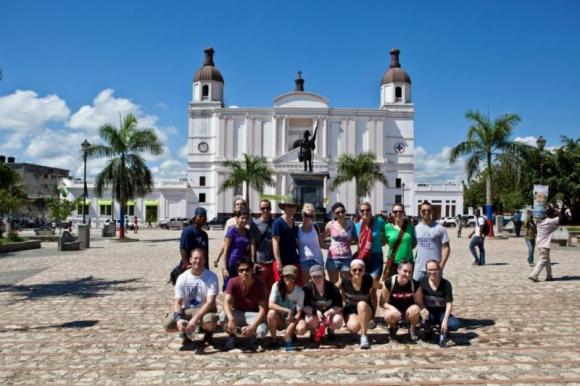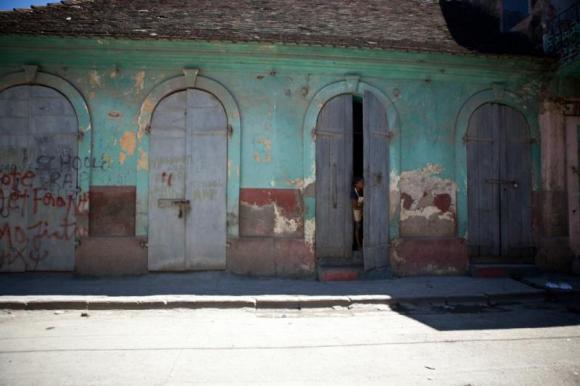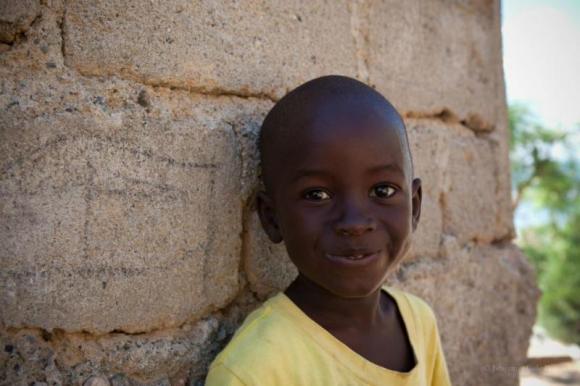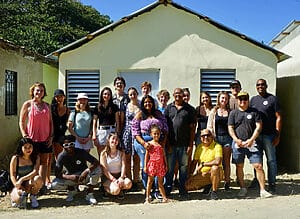Define Poverty
Haiti first came into my world view in 2008, as was the case for many, after the enormous tragedy that was the earthquake. I was in Grade 12 at the time, and just beginning to pique my interest in social justice issues after a volunteer trip to Honduras through my high school in Grade 11. The overwhelming coverage and global response to the event were impossible to ignore, and I read every little thing I could. I couldn’t even fathom the devastation that must have gripped this country, and I knew it was something I couldn’t just let slip off my radar. The night of hearing about the earthquake, I drew on a giant red shirt the words “Hope for Haiti”, and set off to school armed with a donation bucket and a sharpie for donors who wanted to sign my shirt. I stood up in front of my classmates and explained Haiti’s situation before the earthquake, and why I wanted to raise money to send with a friend, Nikki, who was already planning a trip down with LiveDifferent prior to the earthquake. I raised about $100 and helped her out where I could with other fundraisers she organized. But Haiti had me hooked, and for the next two years I read everything I could about Haiti. In those two years, I completed LiveDifferent Academy in 2010/2011, as well as my first year in university as my interest in social justice issues continued to grow and grow. After a couple years of dreaming and fundraising, I am here in Haiti and I couldn’t be more excited.

Walking through the streets of Calvaire and Cap-Haitien today, Nettie had asked me to write this blog tonight and try and compare it to what I had seen living in Mexico for four months with LiveDifferent Academy. This morning, that seemed like a fairly easy task. For some reason, in my mind, Haiti had been set apart, and I felt like the poverty I would see here would be unlike anything I’d seen in Honduras or Mexico. Being the most impoverished country in the western hemisphere, I expected a whole new level of poverty, although I was unsure what exactly that might look like.

To my surprise, I truly struggled throughout the day to find many differences between what I was seeing and what I had seen in other countries. Despite the obvious language differences and some slight cultural differences, I found that poverty in developing countries has a very similar face, wherever you happen to find it. Poverty still feels unfair. Poverty equals no garbage collection, resulting in garbage collecting in the water, which results in disease. Poverty equals shacks with tin roofs if any at all, which haunt me after my own shack experience through LiveDifferent Academy, with the idea of surviving a rainy season while you and everything you own is constantly in danger of being completed soaked and often destroyed. Poverty equals housing so crammed together, one can only imagine if disease were to strike one house how easily it could spread to them all.
But then again, is that all that defines poverty? When it comes down to it, it seems that all they’re really impoverished in is financial matters and governing structures to offer things like garbage collection and healthcare.

However, the people I met today are so much more than their governance and financial state. Poverty also equals the friendliest faces you’ve ever met, and a world where you’re not crazy to go around greeting every person you meet. Poverty also equals bright, vibrantly coloured buildings that are bursting at the seams with interesting culture. Poverty can also feel unbelievably hopeful, with big dreams and hope for tomorrow. Maybe it is all crammed tightly together, but one can only imagine if we open up and take in the immense amount of love and hope, how far we could spread it.
– Alex, Hero Holiday participant


